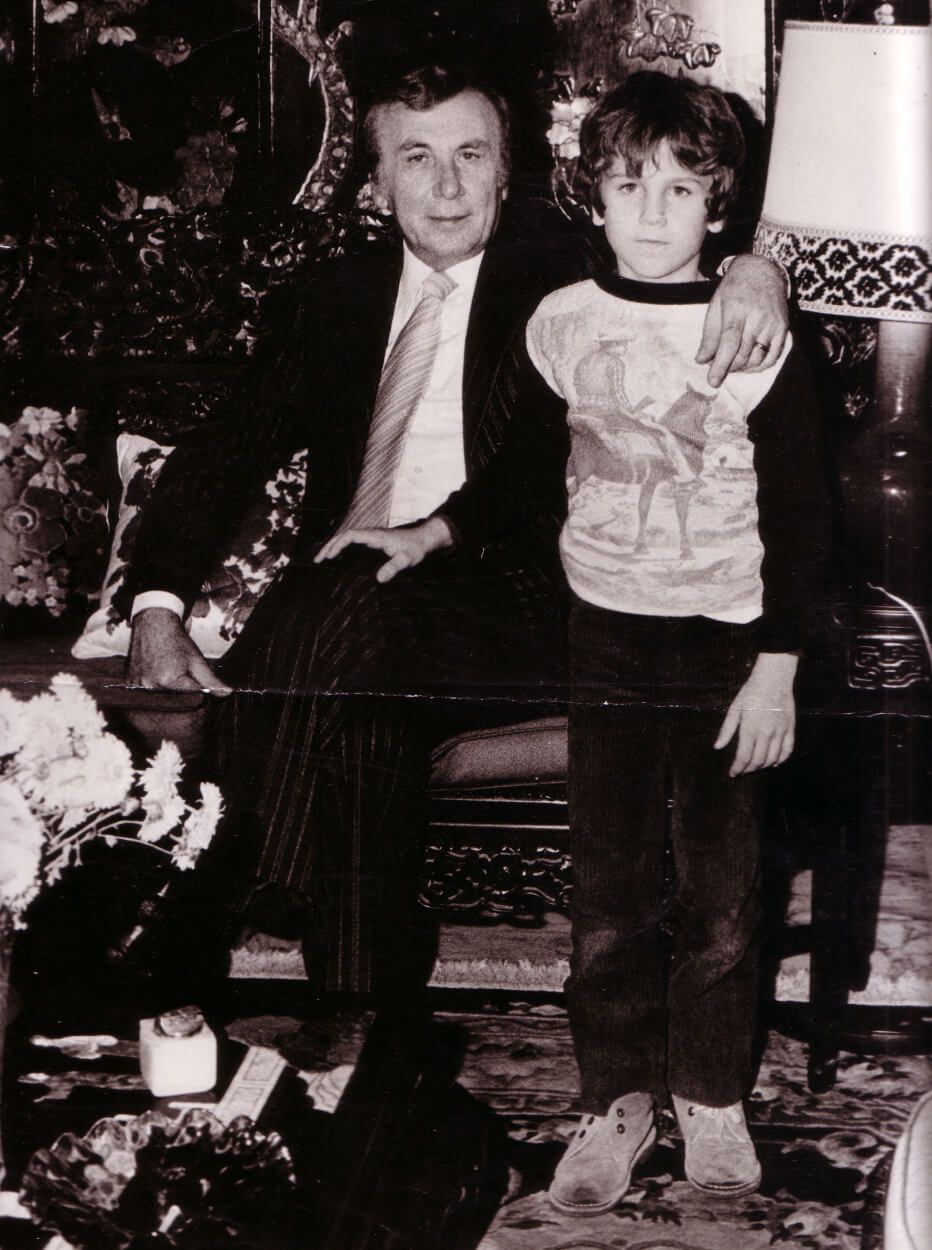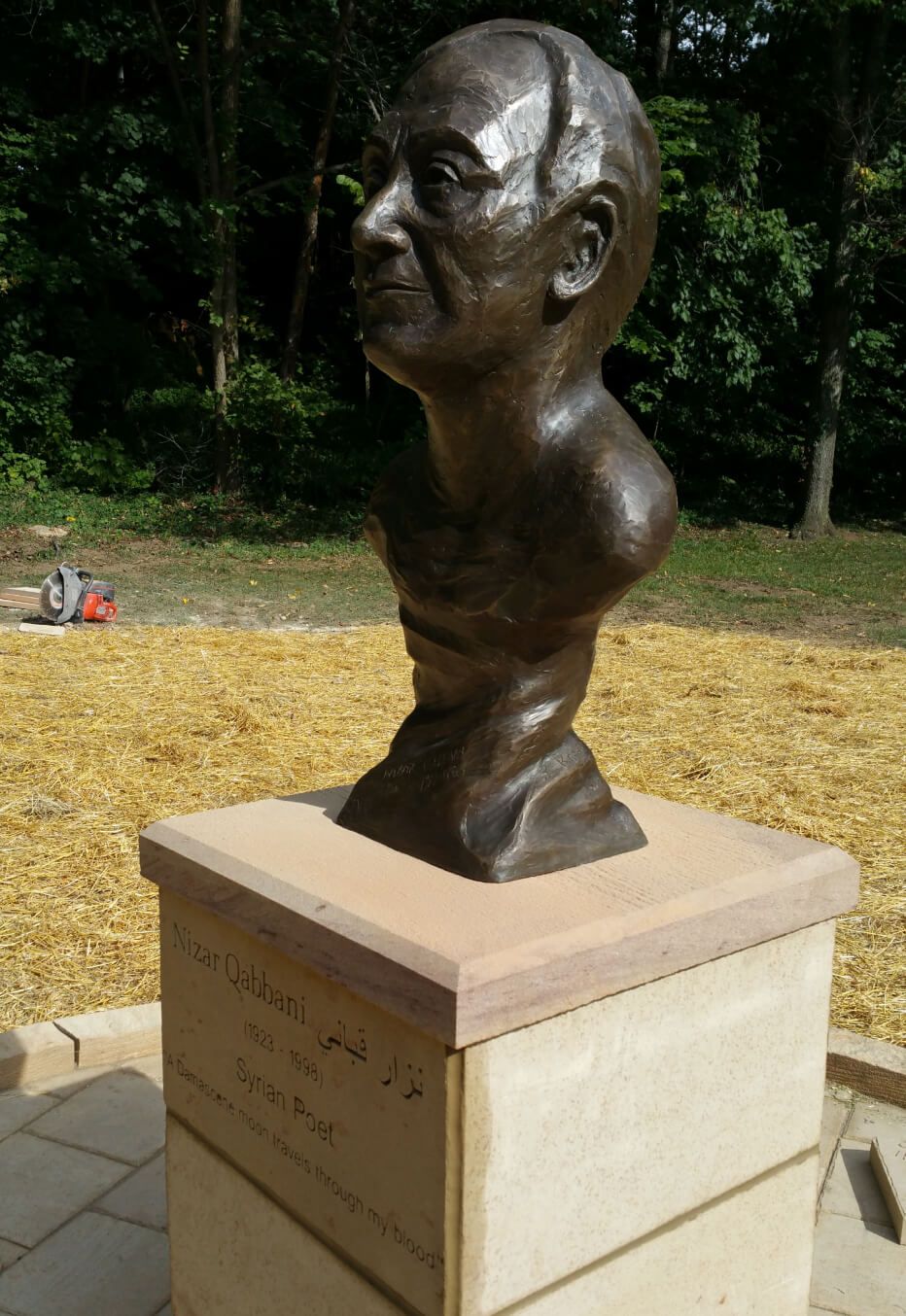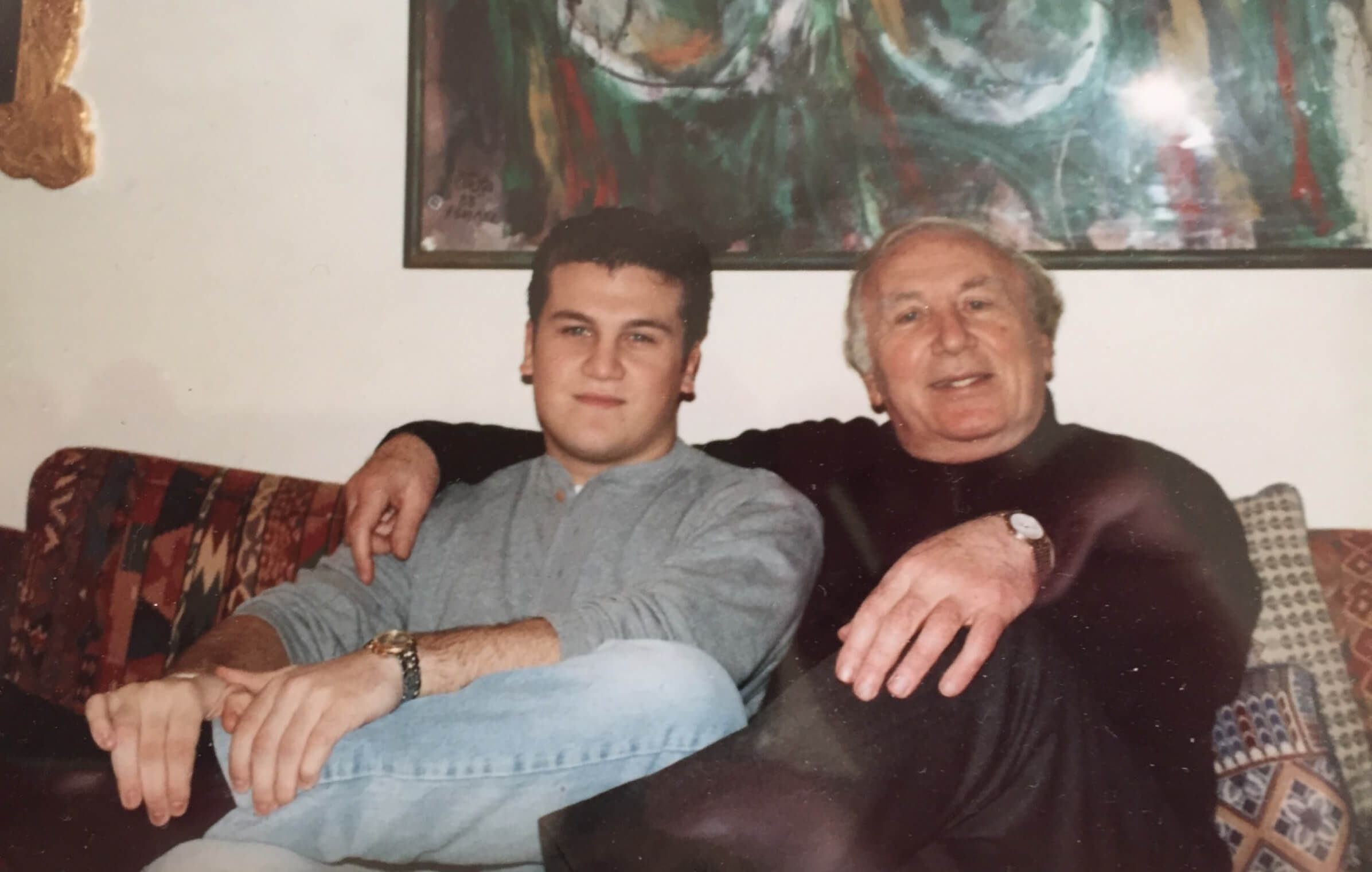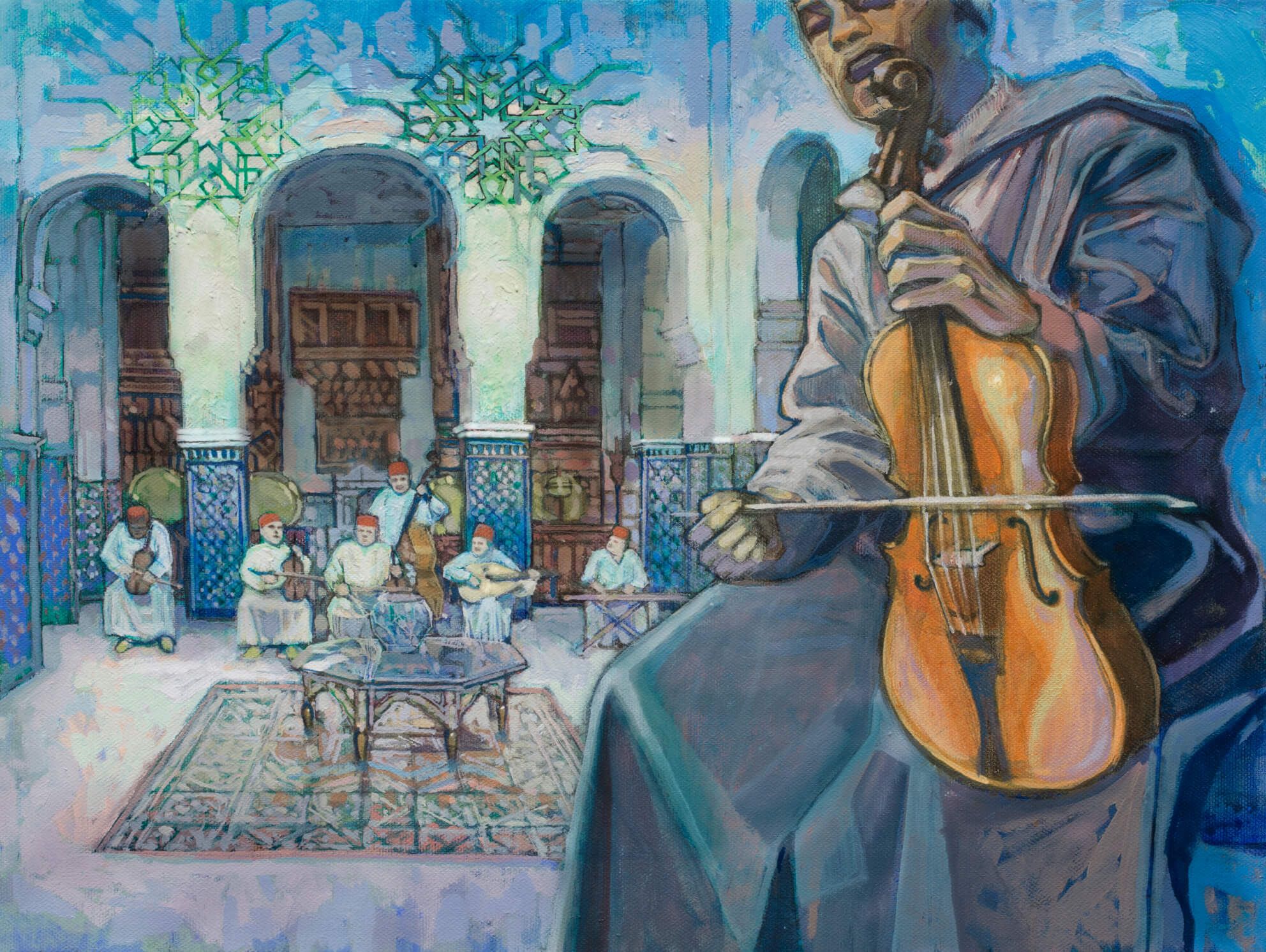100th Anniversary - Homage to the Poet of Love
The late legendary poet Nizar Qabbani. Photo courtesy of the Qabbani family.
Nizar Qabbani (1923-1998), the legendary poet of ‘love’.
As the world celebrates ‘World Poetry Day,’ on March 21, it is perhaps no coincidence that this date is also the birthday of one the Arab world’s greatest poets, Nizar Qabbani, who was born on the same day, in 1923. This year marks his 100th anniversary, and we at Ithraeyat pay homage to this legendary figure whose words live on, inspiring us to reflect, to feel and to remember.
A master of the Arabic language, Qabbani revolutionized poetry, becoming one of the Arab world’s most influential contemporary and progressive thinkers, ahead of his time, a feminist who paid homage to women and femininity. His words praise women as givers, as kind timeless beautiful souls, who are sensitive and gentle. He is also renowned as a romantic sensual poet, whose poems can be understood by anyone in love or in search of love.
Nizar Qabbani’s son, Omar, who is protective of his father’s legacy and recently released a new collection of his father’s poems, made a confession.

The late legendary poet Nizar Qabbani with his son Omar. Photo courtesy of the Qabbani family.
“I am perhaps the only Arab man who hasn’t used my father’s romantic poems to woo my wife,” says the 50 year old in jest who has been living in Dubai with his family for a few decades.
After researching what Nizar Qabbani’s fans would like — published through Beirut’s Hachette Antoine/Naufal Publishing last year — four special themed volumes featuring a selection of Nizar Qabbani’s poems were released and they are: love, women, words, and revolution.
“Every title gives a glimpse about the poems selected for each volume. The books are introduced by authors and poets who loved Nizar Qabbani including Algerian author Ahlem Mosteghanemi, Bahraini poet Parween Habib, Lebanese singer Majida El Roumi, and Egyptian poet Hisham Algakh. The poems are not new, but a selection of Qabbani’s timeless poetry. The late poet left behind many works that have represented a reference and heritage for all Arabs,” the publisher says.
The collection includes a volume dedicated to poems that revolve around women. This volume was introduced by the legendary singer Majida El Roumi, who sang some of the late poet’s works. “I loved her ideas, and the clarity of her mind before I could even love her voice. She resembles me in my depths as a rebel. She feels the words and delivers them in a remarkable manner,” the late Qabbani had said, describing Majida.
The legendary prince of poets was born in Damascus on March 21, 1923 (a city he often referred to as his ‘mother’) and died from illness in London at the age of 75 on April 30, 1998, after a lifetime of travels as a diplomat, an artist, a poet and a writer.
Qabbani was honored in 2016 on his birthday as a Google Doodle, which interestingly enough is also Mother’s Day in the Arab world. The Syrian poet is also known as the "woman’s poet" and "poet of love," as well as revered for addressing important issues like religion, history and Arab nationalism. His wise words resonated then as they resonate today, with lines like: “Don't love deeply, until you make sure that the other part loves you with the same depth, because the depth of your love today, is the depth of your wound tomorrow…"
“He had to portray himself as the Don Juan of the Arab world, but he wasn’t like that at all. He was a real gentleman,” says Qabbani.”
“He appreciated the beauty in everything,” he says, who studied computers and runs a marketing company. In Arabic, Shaer (poet) translates to the ‘feeler’ or the one who feels. “And that is what my father was, a real Shaer,” says Qabbani.”
“He was a humanist, understanding and sensitive to our plight, he felt the anguish of man, of woman, so that is why his work still touches people today from across the world.”
Some of the tributes include a street named ‘Nizar Qabbani’ in Damascus and a bronze bust of the poet in Cleveland, Ohio, in the United States at the Syrian Cultural Garden.
Hitting a chord even today with their universal, timeless themes of love, heartache, nationalism and dreams, Qabbani’s poems are constantly re-shared on social media, with dozens or so accounts set up in his name.

Homage to Nizar Qabbani- a bronze bust of the poet in Cleveland, Ohio, in the United States at the Syrian Cultural Garden.
“The light is more important than the latern,” recites Omar as one of his favorites from father’s work.
“I regularly meet someone who tells me how my father’s poetry inspired them, touched them, helped them see love differently and even a few who say they used his best lines to seduce their future wives,” he laughs. “Why it hit a chord and remains timeless is because my father liberated love, where at the time, sensuality was never talked about, it was shameful to do so, and human bodies were not admired except in the dark, and so he liberated the concept of love as something beautiful.”
One of the turning points in the poet’s life came when he was 15, and a sister who was 25 at the time, committed suicide because she refused to wed a man she didn’t love. From this incident, some of Qabbani’s most famous quotes were born: “Love in the Arab world is like a prisoner, and I want to set it free. I want to free the Arab soul, sense and body with my poetry. The relationships between men and women in our society are not healthy.”
Simpler verses accessible to a wider audience and a high sense of feeling, understanding, together with a philosophical mind, Nizar Qabbani’s words sought to change the world around them. They inspire a sense of love for the self and others, and a deep appreciation for the simplest of things, like the scent of a flower…
Nizar Qabbani.

The late legendary poet Nizar Qabbani with his son Omar. Photo courtesy of the Qabbani family.
Jasmine and its scent has been immortalized by Nizar, who draws with his words, helping us see through our multiple senses. Through one of his poems, he crowned a humble street flower, making it a timeless aromatic ambassador for Syria’s capital city, known as Madinat Al Yasmine (City of Jasmine).
“My father would wake up middle of the night, write down a few poetic lines on the tissue box, for example, and then go back to sleep,” recalls Omar. His father liked nature, he liked to listen to variety of music like classics and Jazz, and enjoyed exploring different world food cuisines.
Omar is the son of the poet’s second wife, Balqis, who was killed in a bomb explosion in Beirut in 1981 when he was 10 years old. He has a sister, Zaynab, as well as a half-brother, Tawfiq, and a half-sister, Hadba, from the poet’s first marriage to Zahra.
The poet’s most mournful and most heartbreaking collection of poems were composed in honor of his deceased Iraqi wife: “Rest in God's care, oh beautiful one. Poetry, after you, is impossible.”
Poetic even in his will, which he wrote while in a hospital bed in London, Nizar stated that he wished to be buried in Damascus, which he described in his will as "the womb that taught me poetry, taught me creativity and granted me the alphabet of Jasmine."
“Nizar interestingly enough means someone who is sensitive, precious and rare, and that is what my father truly was.”
We leave you here with a few lines from one of his wonderful poems.
“I want to make you an alphabet
different from all alphabets,
one that has something of the rhythm of rain
one that has something of the dust of the moon one that has something of the sadness of clouds the ache of willow leaves
crushed beneath the wheels of September…”
Enjoy discovering and rediscovering Nizar Qabbani, whose words are much needed in a world that often forgets to just pause, embrace feelings and just be.


